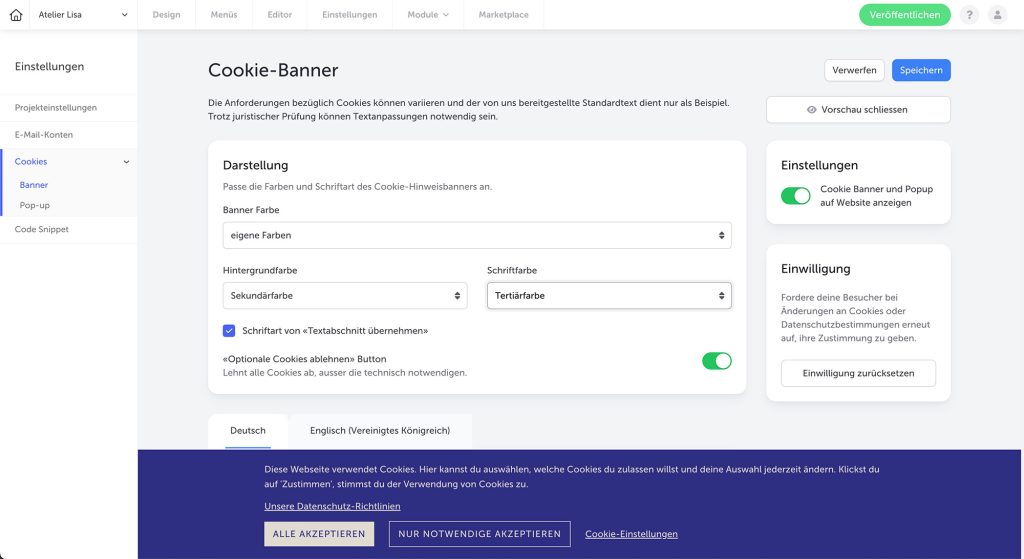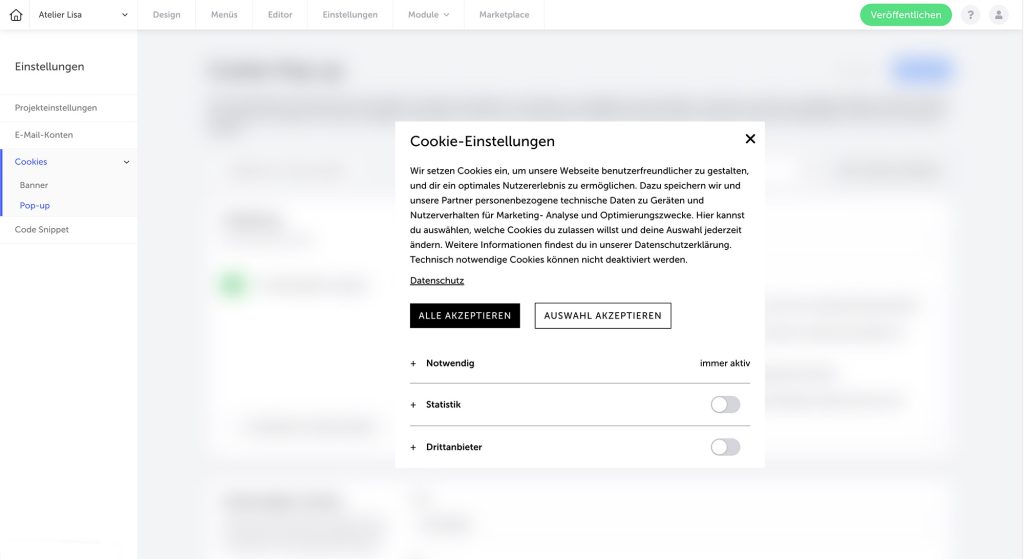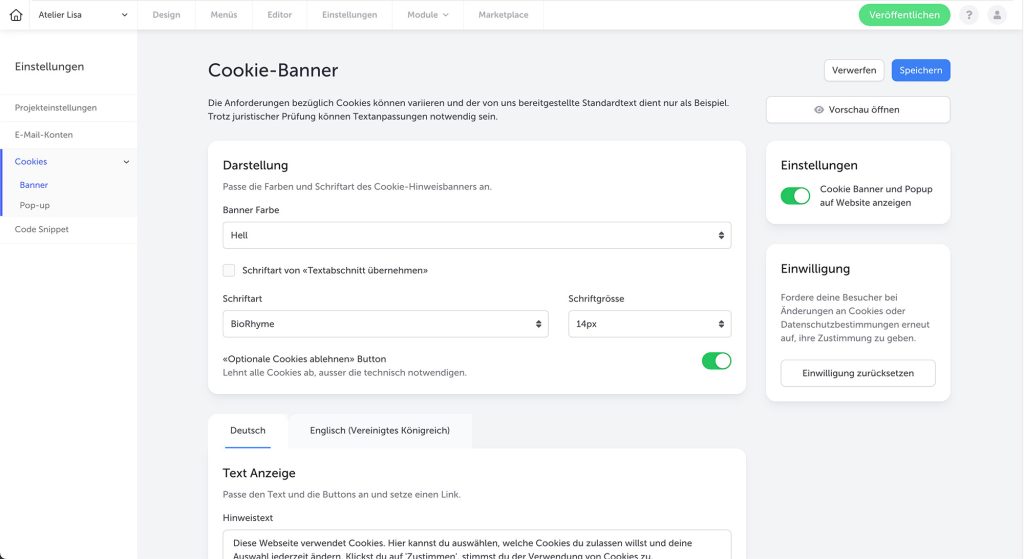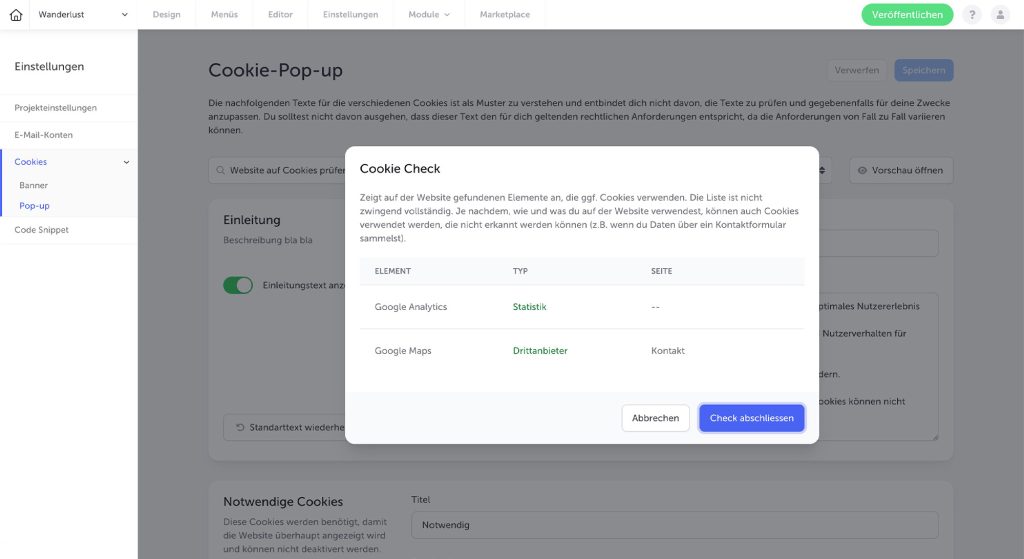A cookie banner is a notification that is displayed on a website to inform visitors that the website uses cookies or similar technologies. Cookies are small text files that are stored on a user’s computer or device to collect information about user behavior, preferences and other data. The banner allows users to consent to or reject the use of cookies.
How do I activate the cookie content banner in the Website Creator?
- Go to ‘Settings’ in the menu at the top
- Click on ‘Cookies’ in the submenu on the left
- Activate the cookie banner
The privacy notice is displayed only when the website is published and is not visible in the editor or preview.
Functions and settings of the cookie banner
The cookie banner in the Website Creator consists of two parts:
- Cookie banner: The banner offers space for an introductory text as well as the possibility for a link to your own data protection page as well as buttons for accepting and rejecting cookies and an optional button to accept only the necessary cookies.
- Pop-up: The pop-up is displayed when the settings or customize button is clicked on the banner. An introductory text can be written for the pop-up, as well as titles and descriptions of the four cookie types that the website visitor can activate/deactivate. A cookie check also shows the types of cookies found on the website.
There are ready-made texts that can be used. Be aware, however, that the texts may have to be adapted or expanded and that there is no guarantee of accuracy.
Warum benötige ich ein Cookie-Banner auf meiner Website?
A cookie banner is required by law in many countries in order to protect the privacy of users. The EU General Data Protection Regulation (GDPR) and other data protection laws require websites to obtain users’ consent to the use of cookies. A cookie banner enables users to make informed decisions about which types of cookies they wish to allow.
Welche verschiedenen Cookie-Typen gibt es?
There are different types of cookies that are used on websites. The most common cookie types are
- Technically necessary cookies: These cookies are essential for the basic functions of a website. They enable core functions such as session management, language settings, the shopping cart in e-commerce websites and website security.
- Statistics cookies: These cookies collect anonymous information about how users use the website. They help website operators to gain insights into user interactions and improve website performance (e.g. Google Analytics).
- Third-party cookies: Third-party cookies are cookies that originate from a domain other than the one you are currently visiting. They are set by external companies or service providers that are embedded on the visited website, e.g. embedded videos, social media buttons or personalized advertising.
Was passiert, wenn jemand Arten von Cookies ablehnt?
If someone rejects one or more types of cookies, they will not be displayed and used on the site. For example, if someone rejects third-party cookies and you have a YouTube video on your site, it will not be displayed.
Gibt es spezifische rechtliche Anforderungen für Cookie-Banner?
Yes, the legal requirements vary depending on the country and region. The GDPR in Europe sets out certain requirements for consent to cookies. It is important to inform yourself about the data protection regulations in your region and ensure that your cookie banner complies with these requirements.
Please note that this FAQ is only a general guide. It is recommended to seek legal advice and consider the specific requirements of your website and target region to ensure that your cookie banner complies with legal requirements.



